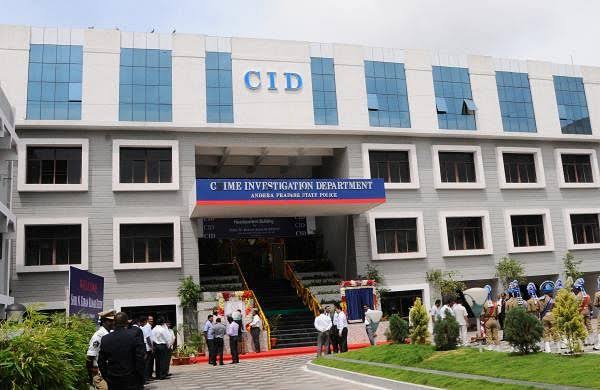Topic: CRIME INVESTIGATION DEPARTMENT
Created By:
Sapna Kumari
Volunteer
Shivi Forensics
Introduction
The Crime Investigation Department (CID) is a specialized division within law enforcement agencies responsible for investigating serious crimes. The CID plays a crucial role in maintaining law and order by investigating and solving serious crimes, making it an essential component of the law enforcement system.
History
- Establishment: The CID was established in 1902 by the British Government following the recommendations of the Police Commission.
- Influence: The concept of CID was derived from the British police forces.
- First Formation: The first CID was formed in Lucknow, and it was presented with the statue of Rai Bahadur Pandit Shambhu Nath, known as the "Father of CID"
- Expansion: Over time, CID units were established in various states across India, each operating under the state police framework.
Function of CID
1. Investigation of Serious Crimes: Includes riots, forgery, counterfeiting, and cases referred by the state government or the High Court.
2. Collection and Distribution of Information: Relating to professional cases and classes of crime such as dacoity, highway robbery, and swindling.
3. Control and Assistance in Inquiries: In serious crimes where local authorities seek help from CID with the approval of the Inspector General or the state government.
4. Specialized Squads: For investigating cases like cheating, defalcation, forged notes, murder, and railway crimes.
Core Functions:
o Collection and distribution of information regarding professional cases and crime classes (e.g., dacoity, highway robbery, counterfeiting).
o Inquiry and investigation into serious crimes, advising, assisting, or controlling local police as required.
o Assistance in cases involving fraud, telegraphic receipts, postal fraud, and international criminal movement.
o Tracking the movement of foreign criminals with the help of state police
Working of CID
Structure and Hierarchy
o Head of CID: The CID is headed by the Additional Director General of Police (ADGP) with assistance from the Inspector General of Police (IGP).
o Specialized Units: CID includes specialized cells such as Anti-Human Trafficking & Missing Persons Cell, Anti-Narcotics Cell, Anti-Terrorism Wing, Fingerprint Bureau, and others.
o Headquarters: Located in Pune, but each state has its own CID.
o Leadership: Headed by the Additional Director General of Police (ADGP) with assistance from the Inspector General of Police (IGP).
Branches and Units
o Anti-Human Trafficking & Missing Persons Cell: Deals with human trafficking and missing persons cases.
o Anti-Narcotics Cell: Handles cases related to narcotics.
o Finger Print Bureau: Maintains fingerprint records.
o Anti-Terrorism Wing: Investigates terrorism-related cases.
o Dog Squad: Assists in investigations.
o Laboratory and Photo Bureau: Supports forensic investigations.
o Crime Branch CID: CB-CID is a special wing in a CID headed by the Additional Director General of Police (ADGP) and assisted by the Inspector General of Police (IGP). This branch investigates serious crimes including murder, riot, forgery, counterfeiting and cases entrusted to CB-CID by the state government or the High Court.
Powers of CID
o Investigation, Detection, and Prosecution: CID has the power to investigate, detect, and prosecute certain types of cases assigned by the Government and Deputy General of Police.
o Conducting Inquiries: Under the Indian Civil Procedure Code and Criminal Procedure Code.
o Maintenance of Records: Maintains crime and criminal information systems, and plans and organizes criminal intelligence systems.
o Coordination with Other Agencies: Coordinates investigations with state and national institutions.
o Efficient Functioning of SCRB and FPB: Ensures the efficient functioning of the State Crime Record Bureau and Finger Print Bureau.
o Advisory Role: Advises, assists, and reports to the Deputy General of Police and the Government on matters related to investigations and prosecutions.
o Information to Parliament and Assembly: Provides information to Parliament and Assembly regarding crimes, except for purely administrative information.
o Post-Rescue Assistance: Works with NGOs to provide post-rescue assistance to victims of human trafficking.
o Database Maintenance: Maintains databases of cases under trial, court disposals, and court orders.
o Review of Judgments: Examines and reports on judgments given by subordinate courts for appeals.
Eligibility and Roles
o Eligibility Criteria: Includes being an Indian resident, having a degree from a respected institution for officers, and a 12th or Higher Secondary Certificate for constables.
o Job Roles: Includes Sub-Inspectors, Inspectors, Superintendents, and various specialized roles like fraud investigators, police officers, and narcotics officers.
Working Process
o Gathering Evidence: Accumulates facts and evidence for fraud and criminal cases.
o Collaboration: Works with other organizations to ensure rigorous investigative procedures.
o Record Keeping: Maintains meticulous records and participates in autopsies.
Subscribe our youtube 🔗 https://m.youtube.com/@Shivi_Forensics
Join Telegram Channel 🔗 https://t.me/shivi_forensic
Join Whtsapp Group 🔗 https://chat.whatsapp.com/H0VovOlRW2JFbYfpqWFf8F
Your Regards
𝐒𝐡𝐢𝐯𝐢 𝐅𝐨𝐫𝐞𝐧𝐬𝐢𝐜𝐬
+918576803105
shiviforensics@gmail.com
Thank you









0 Comments